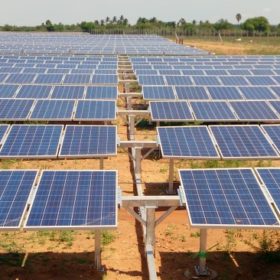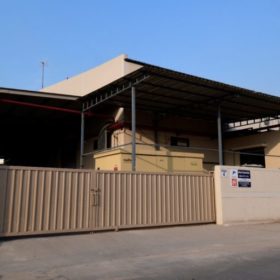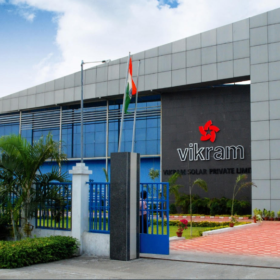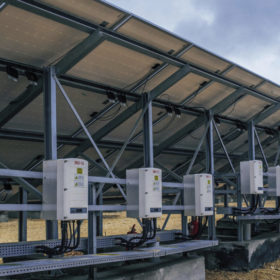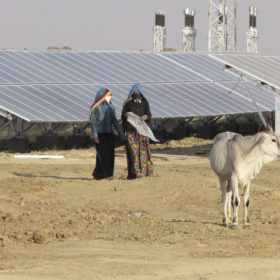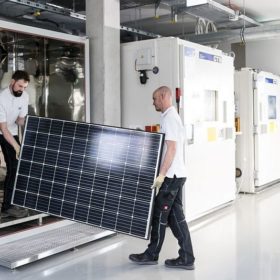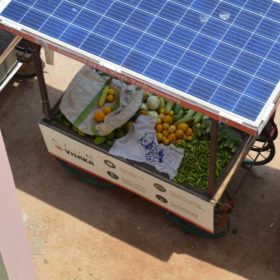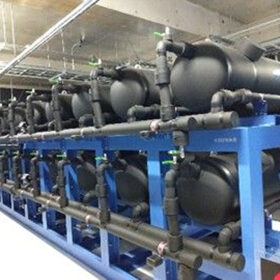Conformity assessment of solar PV panels in India
Quality of testing is equally important even as new test labs come up for solar modules. Proper equipment selection and frequent calibration of equipment are prerequisites to ensure the credibility of the test results.
The long read: In the long run
PV module makers are under growing pressure to increase the power output and longevity of their products, which leads in some cases to rapid changes in the technologies and materials they utilize. pv magazine recently sat down to speak with Kaushik Roy Choudhury and Mark Ma of DuPont Photovoltaic Solutions about the changing landscape for quality in solar PV materials.
Mitsui Chemicals’ solar lab becomes NABL accredited to test high-efficiency modules
The solar lab—based in Ahmedabad, Gujarat—uses Xenon-based single-long-pulse flasher and steady-state simulator from Netherlands-based Eternalsun Spire to test all current and future PV modules.
Vikram Solar ranked ‘Top Performer’ module manufacturer again
The Kolkata-based manufacturer’s Somera monocrystalline silicon and Eldora polycrystalline silicon PV modules met and exceeded international quality and performance benchmarks in assessments by PV Evolution Labs.
The long read: More or less
How much granularity in monitoring and optimization is enough? Module-level power electronics have been a popular addition to the residential segment and, for several reasons, have enjoyed growing popularity on commercial rooftops. But where is the limit? While there are the first ground-mount installations with MLPE, other companies suggest that less is more and scaled down their optimization and monitoring granularity.
The long read: The right tools and tenders for building a quality framework in India
“Quality control is expensive.” This common misperception is largely responsible for many of the product defects, design mistakes, and bad practices in the construction and commissioning of PV plants in several markets around the world. Strong downward price pressure underlined by reverse-auctions has created a false assumption that a budget for quality control is not necessary – as PI Berlin’s work in India is revealing.
MNRE extends ALMM enlistment date for solar cell and module manufacturers
Due to temporary disruptions caused by Covid-19 epidemic and the current lockdown, the Ministry of New and Renewable Energy (MNRE) has notified six months extension in the effective dates for the Approved List of Models and Manufacturers (ALMM). The list is now set to apply from the end of September 2020.
Preventing PID at 1500 volts
Scientists in Germany have developed a “heavy duty” test to provide insight into the long term effects of potential induced degradation in PV modules. The tests go well beyond those established by IEC standards and seek to guide manufacturers and investors on the best choice of materials – encapsulants in particular – when it comes to long term PID resistance.
IIT Bombay group suggests method of detecting early-stage discoloration in EVA encapsulants
A new, non-destructive technique has been proposed by researchers who say identifying early-stage discoloration in EVA encapsulants can help detect degradation in solar panels before power output is affected. The IIT Bombay group used an ultraviolet accelerated aging test during 34 days on three encapsulant samples.
Visaka’s solar roof receives IEC CB 2016 and UL 61730 certification
Compliance to revised IEC standards allows the ATUM roof with integrated solar panels to chart markets in over 50 countries.
